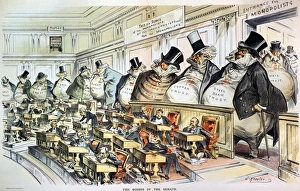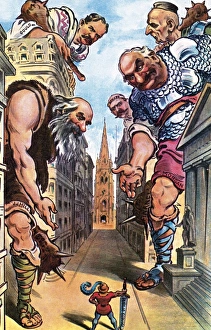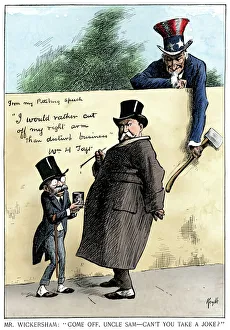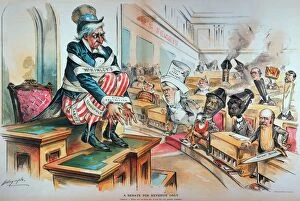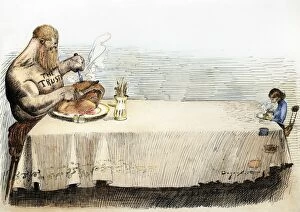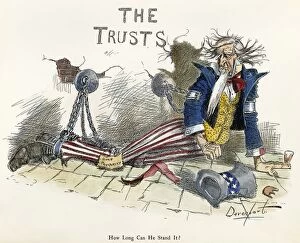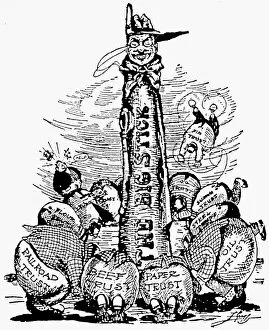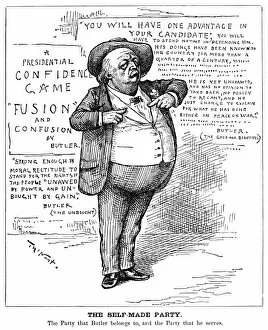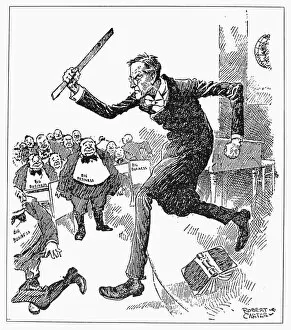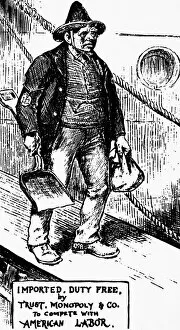"Unmasking the Power: A Historical Journey through Anti-Trust Cartoons" Step into the world of political satire as we explore a collection of captivating anti-trust cartoons from the late 19th and early 20th centuries. These thought-provoking illustrations, created by talented artists such as Joseph Keppler, Thomas Nast, and Homer Davenport, shed light on the growing concerns surrounding monopolies and their impact on society. In 1889's "The Bosses of the Senate, " Keppler unveils a disturbing truth - that powerful figures control not only politics but also essential aspects of everyday life. This sentiment is echoed in Nast's "The Rising of Usurpers and Sinking Liberties, " where he protests against trusts' stranglehold over necessities. President Theodore Roosevelt takes center stage in several cartoons, including one from 1904 titled "No Molly-Coddling Here. " With his metaphorical Big Stick swinging at trusts and everything else in general, Roosevelt symbolizes a leader unafraid to challenge these economic giants head-on. Another prominent figure tackling anti-trust issues was President William Taft. In various satirical depictions like the cartoon from 1911 lampooning his antitrust policies, Taft is portrayed as attempting to navigate treacherous waters while battling corporate interests. These visual critiques highlight an era dominated by robber barons who amassed immense wealth at the expense of ordinary citizens. The aptly named cartoon from 1889 showcases this reality with its portrayal of modern-day Robber Barons reigning supreme over society. Homer Davenport's work offers unique insights into public sentiment during this period. His cartoon "Two Ends of the National Table" (1902) reveals America divided between those benefiting from trusts' power and those suffering under their influence.

